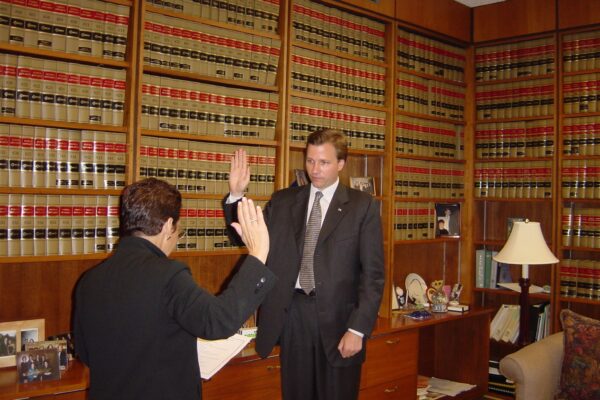I remember making a big mistake almost ten years ago, placing my trust in a close friend. Of course, I did not know at the time that this would be a big mistake. I thought that I could completely trust the person. When the situation began to unravel and hurt others that had placed their faith in me, I was in denial about it at first. Then I became very angry. Later, I became depressed about having been deceived and lied to repeatedly. Finally, almost a year later, I fully accepted my mistake and was able to move on in a positive and constructive way.
Perhaps you can relate? When most people face a major personal crisis of their own making (for example, a major mistake in our choice of life partner or an extremely poor personal investment decision), we tend to follow a well-known five-stage process to cope with the unexpected setback: 1) denial, 2) anger, 3) bargaining, 4) depression, 5) acceptance. Only once we reach the acceptance stage, do we actively start the often difficult work to critically analyze our mistakes, learn from those mistakes, and start taking the necessary steps to ensure we don’t repeat them. In some cases, we might stay stuck in the “denial” stage for longer than we should, just hoping that maybe, just maybe, things will turn out alright in the end. In another case, we may focus on our anger for a bit longer than we should. Or we stay depressed for years before turning our attention to accepting our mistakes, learning from them, and focusing on the future.
What if it’s a corporation facing a crisis of its own making?
When one of Germany’s oldest and most important corporations, Siemens AG, was hit with charges of systemic corruption late in 2006, the company moved through the five stages relatively quickly. Hundreds of employees had paid millions of dollars in bribes to win contracts and the evidence that management had been complicit in the decades-long conduct was incontrovertible. Still, Siemens executives started by downplaying the situation, denying awareness or involvement in it. But by the summer of 2007, a new “outsider” CEO was brought in (the first in the company’s 100+ year history), and significant investments in changing the corporate culture were already bearing fruit. By 2008 more than half of Siemens’ 400,000 employees around the world had received anti-corruption training. Significant changes were made to the composition of the company’s Supervisory Board. The lesson Siemens had learned was that unethical behavior can be very costly to shareholders. All in all, the company estimates that it paid more than $2.5 billion in overcoming this crisis of its own making.
But what happens when a corporation gets stuck at one of the earlier stages of the coping process? Tragically for shareholders, Volkswagen AG, Germany’s largest corporation, is an example of this. The company’s handling of the “Dieselgate” crisis over the past two and a half years has been abysmal. Interpol has issued five arrest warrants for indicted VW executives, the offices of the law firm representing the company’s board has been raided by German prosecutors, and the cost of what has widely been described as “Germany’s largest corporate scandal” now tops $30 billion. And that was before it came to light a few weeks ago that Volkswagen paid for scientific experiments involving unsuspecting monkeys and human students being deliberately exposed to diesel exhaust fumes. Based on the company’s actions, and inactions, it is clear that Volkswagen is still stuck in the “denial” stage.
Growing up in Germany, my first car was a VW Golf and I was so proud of it. Until the company’s board of directors and management team face the facts and move to truly accept the mistakes that they have made, it will be impossible to start healing the company’s broken corporate culture and regain the public’s trust.
Michael Marquardt is a German-American entrepreneur, a globally respected leader and sought-after advisor who enables corporations to conquer the formidable bureaucratic, social and political challenges of opening, acquiring, and growing businesses abroad. Clients have looked to him to identify and cultivate talent for senior recruitment needs and to provide decisive market intelligence. Follow Michael @MarquardtGlobal or go to MarquardtGlobal.com to learn more





